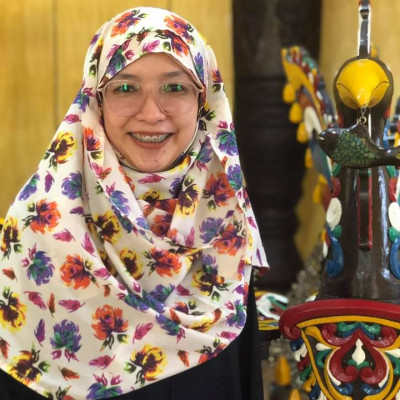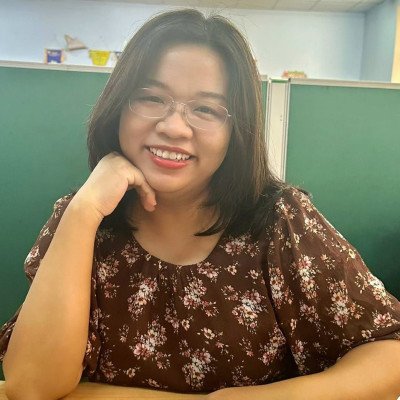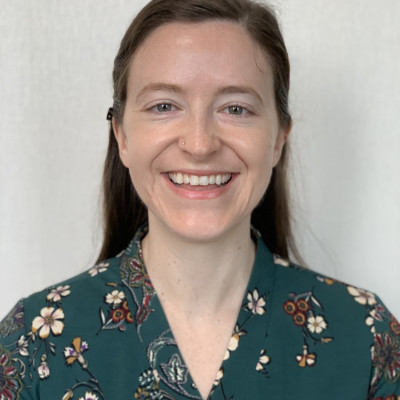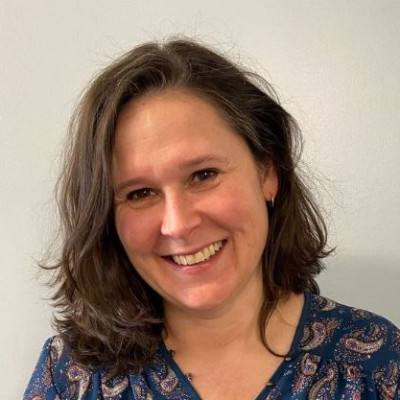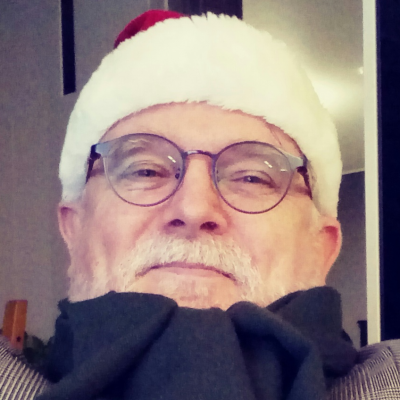Sessions / Speaking / Conversation / Pronunciation
Ramayana and Effective Communication #3605
Partner Session (ELTAI)
The session will focus on ways of effective communication through Valmiki Ramayana, a holy book for Indians. It will also talk about the concept of 7Cs through a Godly figure "Ram". This paper will also unravel that 7 Cs concept was given by Valmiki in Ramayana variously from the 5th century BCE to first century BCE not by Professor Scott M Cutlip and Allen H Center from the University of Wisconsin. The paper will also talk about effective ways of communication.
Fear of Public Speaking: The Truth Amongst ESl Learners #3620
Public speaking is both a strength and a weakness. When you overcome it, you gain inner strength and self-esteem. But, when you don’t, the experience becomes a great challenge. It also provides training in a variety of personal and social competencies such as self-awareness, self-confidence, and dealing with the fear of communicating. However, Spijck (2011) amplified that almost eighty out of every hundred people experienced public speaking anxiety at a small or large scale. Four out of every ten people rank public speaking fear as one of their top three apex fears, often a fear more dreadful than death. This quantitative research investigated the level of anxiety of Purposive Communication students at Mindanao State University and the factors causing this fear of public speaking. The respondents answered a modified survey questionnaire that identified the following factors namely: expectations and exposure, confidence, lack of vocabulary and lack of preparation.
An Action Research on Teaching English Pronunciation Using English Songs in EFL Classrooms #3638
This paper aims to identify an effective technique in deploying English songs in teaching English pronunciation in EFL classrooms in Long An province (Mekong delta region in the south of Vietnam). High school students find it challenging to pronounce many English words. To enhance students’ production of the various sounds and supra-segmental features of English, the researchers used English songs as a supportive technique in EFL classrooms. Using an intuitive-imitative approach the steps of planning, acting, revising and reflecting in the classrooms was recycled. To collect data 120 students were invited to respond to surveys and 30 were interviewed to share their perceptions and thoughts regarding their English pronunciation improvement if any. Thematic analysis and statistical analysis were used for each type of data collection. The main findings suggest that learning English pronunciation with English songs is effective. Mainly, students improve rhythm and gain accuracy in pronunciation of the tonic unit of the utterance, which helps them speak confidently to some extent.
Effects of Receiving Weekly Peer Feedback on L2 Speaking Development #3418
This presentation talks about the effects of receiving weekly peer feedback on speaking development over time. Research has indicated that peer feedback can improve the process and product of language learning (Lee & Tajino, 2008). While teachers make more comments on grammatical features, students generate more comments on content, organization, and vocabulary. A total of 38 students participated in this seven-week study. Each week, all participants narrated and recorded a different four-picture cartoon in English. Participants listened to each other’s recording and gave feedback to improve their partner’s narration After receiving comments, participants narrated the same cartoon again. All narrations over seven weeks were recorded, transcribed, and analysed. Comparing post-test with pre-test, participants improved in syntactic accuracy and fluency. Furthermore, three participants’ speaking output was qualitatively analysed in terms of trajectory changes in complexity, accuracy, and fluency. This presentation concludes with pedagogical implications for integrating peer feedback into TBLT classrooms.
Vietnamese Students’ Perception of PechaKucha in English Public Speaking Classes #3576
A PechaKucha is a presentation format of 20 slides of images with little text, each of which advances automatically after 20 seconds. Despite being quite popular globally in the last two decades, in Vietnam, PechaKucha is a relatively new concept, as most English Public Speaking classes still employ the traditional slides. This includes the researchers’ organization, International University, HCMC Vietnam National University. With the aim of offering students and their audience a new choice of presentation style, and investigating Vietnamese students’ perception of this style, PechaKucha was introduced to 10 English public speaking classes. A questionnaire was then administered to students who used PechaKucha for their assignments. Fifty responses were collected for data analysis. The results show positive feedback in general, but there are some concerns about the time constraints and the extra amount of work. Implications of the results can assist changes in the syllabus of the subject.
Novice Learners’ Collaborative Work in Reflective Discussion Activities #3384
This study focuses on how reflective discussion activities is sequentially organized and collaboratively achieved by low-level learners who have limited opportunities for managing interaction. The study examines 34 video recordings of paired post-reading discussion activities among Japanese high school students using conversation analysis as a theoretical and analytical framework. Based on the preliminary analysis, the participants use what they have read as a shared resource to maintain conversation. When one participant has difficulty speaking further and there is a pause, the other treats it as a difficulty that both have to bear responsibility for. Reading the common material during class has enabled this practice. Additionally, it allows the other participant to make up for the initial difficulty, helping in constructing further turns or shifting to another topic. The results show the novice learners’ collaboration functions as affordances to explore their thought and indicate possible teachers’ roles as mediators of learning.
Conversation Based Learning: Use Partners, not Grammar #3470
Stop the insanity. Grammar-based English is failing another generation of students. With videos and ten years of data, this presentation details Conversation-Based Learning from first-day placement test to last-day improvement data. The method is Writing for Speaking. Writing before speaking improves accuracy, speaking to many partners improves fluency. Students sit in pairs and have speed dating conversations. They get a new topic every week and a new partner every seven minutes. Everybody speaks half the time, and half the time their partner is a better speaker. The self-transcribed conversation test completes the system. Students get extensive personal feedback, and teachers get accurate grading and improvement data. In short: students write what they say, talk about what they wrote, transcribe what they said, and correct their own mistakes. Students do all the work. Good. An education is preparation for life and life is not a grammar test.
ADOQ: A Practical Formulaic Sequencing Strategy for Improving Oral Fluency #3478
Formulaic sequences (Pangket, 2019) are practical word combinations and patterns. These word sequences can be used in diverse ways that encourage natural and extemporaneous speaking. ADOQ is a formulaic sequence (FS) that respectively refers to answer, detail, opinion, and question. This sequence works to facilitate the simultaneous processes of quickly accessing knowledge while logically activating oral production. Therefore, FS encourages longer speaking durations while reducing the length and frequency of pauses and recollection silences (Pangket, 2019). As learners become more proficient with a sequence, the sequence components can then become modular to align with higher complex speaking skills and collaborative tasks. In this immersive 50 minute workshop, the formulaic sequence “ADOQ” will be explicitly modeled with modulated scaffolding for implementation in various speaking contexts. This interactive workshop includes group discussions, practice, and reflection. Audience members can immediately implement ADOQ into their curriculum and course content with minimal prep time thereafter.
Bringing English vowels to life: Vowel instruction for Korean learners of English #3483
Though Korean contains less than half of the vowel sounds in the English language, the lion’s share of pronunciation instruction tends to go to consonants. This is understandable, as consonants often possess more obvious points of contact that are easier for uncertain teachers to surmise and convey to students. With the aim of stripping away this uncertainty that educators often cite as a barrier to teaching pronunciation, in this introductory workshop, we will examine the vowels that frequently pose a problem for our Korean learners of English, the reasons behind those problems, and clear ways of describing proper articulation. We will also gain hands-on experience as we go beyond ‘repeat after me’ and explore practical applications of oral, audio, visual and tactile techniques, activities, and cheats for teaching pronunciation that make learning not only impactful, but also enjoyable for our learners.
A Pronunciation Toolkit for English Instructors #3530
Comprehensible pronunciation is an essential part of our students’ successful communication. However, it can be difficult for teachers to know what to focus on when our learners have so many challenges. As well, integrating clear and helpful instruction, along with opportunities for practice, can be a struggle in an already jam-packed curriculum. In this workshop, participants will explore the core features of pronunciation that have the most significant impact on our students’ intelligibility. The speaker will demonstrate techniques for addressing these elements of speech using everyday items that teachers can carry in their pronunciation “tool kits” to help students master core pronunciation features in a practical, fun way. In addition, the speaker will demonstrate how this practice can be seamlessly incorporated into existing lessons. Session participants will leave with "toolkits" of their own, as well as engaging ideas they can put into practice in their own classrooms immediately.
Speedy Conversations and Extensive Speaking for English Fluency in University EFL #3545
Student collaboration through speedy conversations in conjunction with extensive speaking activities to increase fluency. Previous research has suggested that extensive monologic speaking activities modelled after extensive reading can result in superior performance outcomes in intensive courses (Gu & Reynolds, 2013). The current study integrated speaking instruction with both dialogic and monologic speaking activities within a common extensive EFL situation at a South Korean university. Instruction was given twice weekly during 90-minute classes. Students performed in-class speedy activities based on Maurice’s (1983) 4/3/2 fluency drill, and completed short recordings twice weekly as homework. The research team compared pre- and post-intervention speaking fluency. The findings show that the ‘pedagogical cocktail’ for speaking instruction was statistically significant and that the effect size was substantial. Participants in this talk will learn about our research, have an opportunity to share perspectives on spoken fluency, and gain practical tools for their TESOL classrooms.

